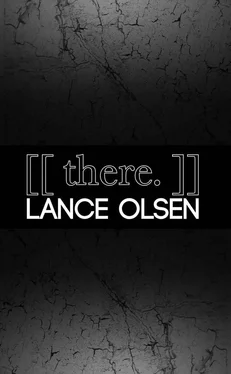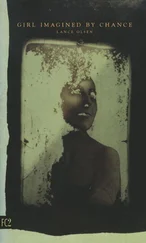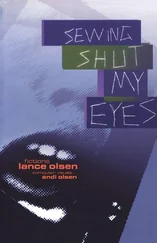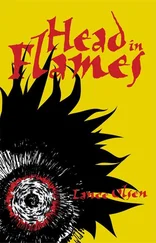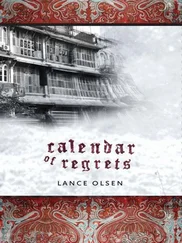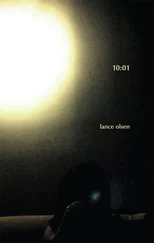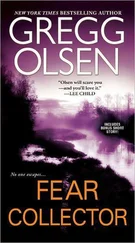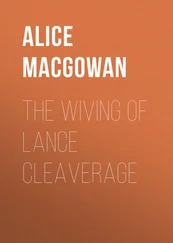The only topic André could remember Beckett and him talking about on the way was cricket. That is, one of the conversations to which I would most love to have been privy in my life would have been utterly incomprehensible to me.
:::: [[I’m]] at a theatrical rethinking of Kafka’s The Castle .
Instead of speaking, the actors in the Novoflot opera company sing gorgeously rendered Schubert lieder against a sonic background generated by a dissonant ensemble featuring improvisation by a trombonist who, at one point, uses his instrument as a sledgehammer against a metal wall.
Ten minutes, and audience members are asked to rise and move from the primary theater to a connecting one. As soon as they take their seats, the stands they’re sitting in commence revolving. Tucked into a corner, an artist at a computer doodles stick figures, arrows, phrases that are projected onto the walls. The ceiling lowers, compressing space.
The production doesn’t retell Kafka’s text so much as actualize a series of moments that half-rhymes with it.
[[I]] end up feeling what [[I]] felt when [[I]] read The Castle , only more so: [[I]] negotiate a non-space more Kafkaesque than Kafka’s original, a production more like The Castle than The Castle is like itself.
Near the end, a dead child lowers by cord from the ceiling.
:::: The first postwar art gallery — Galerie Rosen — opened at 215 Kurfürstendamm three months after Hitler and Eva Braun changed tense beneath what is now the lawn of a residential housing project and kindergarten in the old East Berlin.
The gallery featured works that earlier in 1945 would have been denounced as degenerate and burned. Gerd Rosen, the founder, thereby flagged the reintroduction of a liberatory sphere for the arts in Berlin that championed an aesthetics of life over living death while standing in flagrant contrast to the head-slappingly dreary social-realist figurative one manufactured by the G.D.R. at the same time that attempts to share with us the beatitudes of farmish and factoryish monotony.
Being a brief history of the experimental and mainstream in U.S. publishing.
:::: Curiosity arrives in English from the Latin curiosus , meaning not only diligent , but also meddlesome, by way of the old French curios , which often denoted anxious, odd, strange.
In booksellers’ catalogues, the word curiosity means pornographic .
:::: Paul Bowles felt most inspired when inhabiting the interval between two places.
:::: Sit on your hands, the Stasi interrogator tells the accused in the opening scene of Florian Henckel von Donnersmarck’s The Lives of Others , another rethinking of Kafka. They are in one of those confining tan interrogation rooms at the East Berlin detention center Andi and I visited earlier this week.
The interrogator’s flat tone and blank blue eyes announce: Pay attention to me. Anyone can happen next.
:::: The Kaiser Wilhelm Memorial Church, like Galerie Rosen, was located on Kurfürstendamm with its swank shops, hotels, restaurants, and Jaguar showroom. It was largely demolished in a 1943 bombing raid. The damaged spire remains as memorial.
Every few years scaffolding rises around the structure. A team of specialists sets out to maintain just the right ruined look — not too much destruction, not too little.
:::: This book: a waste aesthetics.
:::: Naturally O. isn’t suggesting New York doesn’t publish vibrant, surprising work: José Saramago, David Mitchell, Don DeLillo, Lydia Davis, Mark Danielewski, et alia.
O. is suggesting, however, New York brings out less of it— much less of it — than it once did. Nor does he want to submit that alternative presses don’t bring out some embarrassingly simple sloppy stuff. Still, those small presses constitute important sites of aesthetic, political, and philosophical anti-Oedipal resistance.
They remind us with each publication that our writing, and hence our lives, can be other than they are.
:::: No wonder we cannot appreciate the really central Kafka joke, David Foster Wallace advanced: that the horrific struggle to establish a human self results in a self whose humanity is inseparable from the horrific struggle.
Our endless and impossible journey toward home is in fact our home.
:::: Barnacles growing on a wreck or a rock.
Donald Barthelme once described his fiction as.
:::: When in the condition of traveling, you can by definition never take anything for granted.
:::: During the war, tankers my father sailed on were torpedoed and sunk two times. Once he was forced to jump overboard into a burning sea while a U-Boat circled, machine-gunning the survivors of the initial blasts.
By the time you hit the water, he told me, you have either chosen to believe in God or chosen never to believe in Him again.
My father got on the latter tram.
:::: [[Yesterday will invariably remain a rumor.]]
:::: When Linda Hutcheon talks about historiographic metafiction, she’s talking about writing practices aware of themselves as writing practices, aware that pastness occurs only in an incessant process of being un- and re-written.
:::: Wandering from room to room in the Wannsee Conference center, you wonder how Germans can carry such history on their backs from one day to the next.
A thought which leads you to wonder how Americans can do the same.
:::: Facts, Hutcheon continues, are discourse defined. Events are not.
To narrate, naturally, is to constellate facts.
To tell is by necessity to tell through the glitch of memory and fuddle of ideology.
:::: The genocide of Native Americans. Slavery. Vietnam. Und so weiter.
:::: I sit across a table from a French fellow at dinner. She lives in America, does German philosophy. Her father spent the butt ends of the war in Buchenwald, then Dachau, for working in the Resistance.
Her young communist self believed the G.D.R. was populated by utopian communes where girls in spotless white dresses played on lawns green as those now covering the remains of the Führerbunker — until she arrived in East Berlin to spend a righteous summer building housing for the comrades, only to find herself living in a hovel in a muddy field in one of the drabbest, meanest corners of earth.
That is, she explained, she’s had a profoundly complicated relationship with Germany all her life and yet, after spending many months on and off in Berlin since those strange early days, she caught herself last week strolling down a street in the city center loving the country without qualification.
Why?
The Germans, she explained, have more fully, more honestly confronted their heebee-jeebies yesterdays than any other culture she could name.
:::: The first definition of the word experimental is of a witness: having actual or personal experience of anything .
:::: Wandering Berlin’s streets, I find myself thinking about the morality of architecture: what you choose to reference, demolish, build, rebuild, reshape, augment, bury, unearth, partition, rename, retell, put a plaque on.
How. Why.
:::: Ampelmännchen : the dapper male figures wearing hats that comprise pedestrian-crossing signals here. When red, their arms are outstretched to block the way. When green, they appear in mid-stride to suggest it is safe to walk. Designed by a psychologist worried that about eight percent of any population is colorblind.
Born in East Germany in 1961, Ampelmännchen are one of the few communist symbols to survive the Wende — the Peaceful Revolution, the fall of the Wall, the transition to democracy in the East — and infect the West.
:::: Because the worst has already happened in the world of books. They have come to seem over the last four or five decades an increasingly conservative, market-driven form of communication. There exists a censorship in publishing based on an economic ecology. In addition to the current outlandish situation in Manhattan, even bestsellers now exist in a secondary position to the spectacles of film, television, the web, the Xbox, the iPod, the iPhone, the iPad.
Читать дальше
